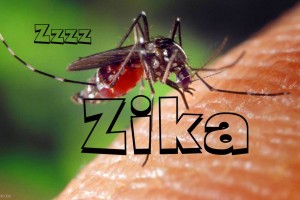- Home
- Editorial
- News
- Practice Guidelines
- Anesthesiology Guidelines
- Cancer Guidelines
- Cardiac Sciences Guidelines
- Critical Care Guidelines
- Dentistry Guidelines
- Dermatology Guidelines
- Diabetes and Endo Guidelines
- Diagnostics Guidelines
- ENT Guidelines
- Featured Practice Guidelines
- Gastroenterology Guidelines
- Geriatrics Guidelines
- Medicine Guidelines
- Nephrology Guidelines
- Neurosciences Guidelines
- Obs and Gynae Guidelines
- Ophthalmology Guidelines
- Orthopaedics Guidelines
- Paediatrics Guidelines
- Psychiatry Guidelines
- Pulmonology Guidelines
- Radiology Guidelines
- Surgery Guidelines
- Urology Guidelines
Zika infection caused by one virus serotype: study

Washington : Vaccination against a single strain of Zika virus is sufficient to protect against its genetically diverse strains, a new study has claimed.
Zika virus strains are grouped into two distinct genetic lineages: African and Asian. The Zika virus strain circulating in the current outbreak affecting Central and South America and the Caribbean is of the Asian lineage, said researchers from Washington University and Emory University in the US.
When individuals are infected with Zika virus, their immune systems produce neutralising antibodies to fight the infection. These antibodies may offer immunity against future infections by strains of the same Zika virus lineage, they said.
Until now, it was unclear whether the antibodies could also protect against infection with strains of the other Zika virus lineage. Results from laboratory experiments and tests in mice now show this may be possible.
Such protection indicates that, despite being genetically distinct, all strains of Zika virus have identical surface antigens and therefore are the same serotype, researchers said.
The closely-related Dengue virus has four serotypes, which is why people can be infected with dengue as many as four times, once with each serotype.
For the study, scientists took serum samples from people infected by Zika virus strains circulating in South America and mixed them with multiple strains of the virus in the laboratory to see how well the serum antibodies neutralised the virus.
Results showed that antibodies elicited after infection with Zika virus strains of the Asian lineage were able to potently inhibit both Asian lineage and African lineage strains.
Researchers conducted similar experiments using serum samples from mice and found that sera from mice infected with either Asian or African Zika virus strains were equally effective in neutralising virus strains from either lineage.
The findings are important to the ongoing effort to rapidly develop a preventive Zika vaccine, researchers said.
Because there is only one Zika virus serotype, antibodies elicited by any Zika virus strain in a vaccine could conceivably confer protection against all Zika virus strains, they said.
The findings were published in the journal Cell Reports.

Disclaimer: This site is primarily intended for healthcare professionals. Any content/information on this website does not replace the advice of medical and/or health professionals and should not be construed as medical/diagnostic advice/endorsement or prescription. Use of this site is subject to our terms of use, privacy policy, advertisement policy. © 2020 Minerva Medical Treatment Pvt Ltd